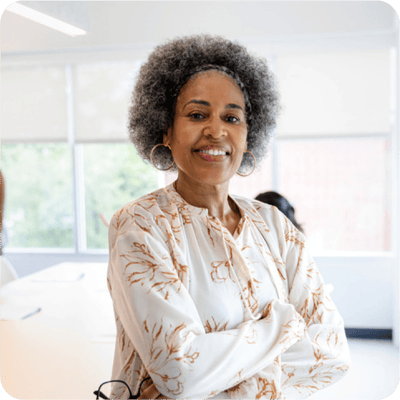The Untapped Opportunity Series
The Solution That Keeps Caregivers Healthy While Making Your Benefits Ecosystem Work Better
In Part 1, we met Devan—a high-performing project lead managing her own diabetes while helping her aging mother care for her sister Maya, who had lifelong special needs but no formal diagnosis.
The complexity was overwhelming. Her health was declining. She was approaching a crisis that would affect both her wellbeing and her career. Then she connected with Family First.
"Someone finally understood what I was dealing with," Devan said about her first conversation with a Care Expert. That conversation gave her something she hadn't had in years: hope and a clear path forward.
Why Health Expertise Changes Everything
"Caregiving stress isn't just emotional—it's a measurable health risk," says Sara MacDonald, RN, CCM, BCPA, CPC, Chief Operations Officer at Family First.
"When we assess caregivers, we're looking at their actual health risks: sleep disruption, chronic stress markers, delayed medical care, worsening chronic conditions. These are the warning signs that precede illness and increased medical costs. Our program strategy is to prevent that progression through proactive support and clinical expertise."
This is the fundamental difference: While many caregiving resources focus on practical help — finding daycare, locating eldercare facilities, providing respite services— they miss the core issue driving employer costs: the caregiver's own health is deteriorating.
The Advantage of an Expert-Led Needs Assessment
Family First's assessments catches what others miss:
- Early signs of caregiver burnout before it becomes chronic illness
- Health risks being neglected (like diabetes management slipping)
- Sleep disruption patterns that indicate serious health impacts
- Mental health markers requiring intervention
- The trajectory toward more serious and costly health conditions
"Caregivers are managing multiple complex systems simultaneously — medical, insurance, legal, educational, social services," explains Dr. Luciano Grubissich, Medical Director at Family First. "Each speaks a different language and has different requirements. We can advocate effectively because we speak the language of these systems while understanding what families actually need."
The opportunity? Intervene before stress becomes chronic illness. Keep caregivers healthy and productive instead of watching them decline.
Whole Person Support that Doesn't Fall Short
Caregiver challenges are complex, spanning health, emotional wellbeing, and the practical demands of daily life. Traditional benefits often address only the one practical aspect of caregiving, leaving gaps. Our approach creates measurable impact by supporting caregivers and care recipients across all dimensions, improving outcomes where other programs fall short.
To learn more about our process, click here to be redirected to our For Employers page.
How Clinical Support works in Practice
Let's revisit Devan. Her Care Expert's background was essential for effective advocacy and for the results she saw.
With her Care Expert coordinating everything, Devan's situation was transformed:
- Maya received a neurocognitive evaluation leading to a formal autism diagnosis after 57 years
- Skilled home care, music therapy, and social programs were arranged
- Devan's mother received respite services and ongoing support
- The family connected with an elder law attorney for special needs trust and Medicaid planning
- Devan saved 24 hours per week in caregiving responsibilities
- 40% reduction in Devan's burnout risk
- Her diabetes became manageable again

"With Family First's support, my stress is down, my diabetes is manageable, and I can focus on my health while Maya makes progress and my mom no longer carries the whole load."
- Devan
Ready to explore what this opportunity looks like for your organization?
Schedule a consultation to discuss your population and current benefits strategy.
